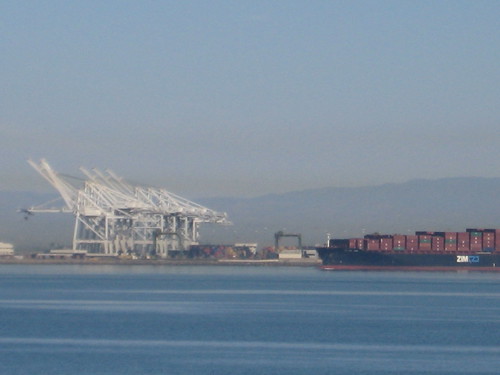Air pollution control requirements make headway in Long Beach

The air pollution restrictions proposed last month by the EPA to the International Maritime Organization to establish a 200 nautical mile virtual perimeter around the lower 48 states, Anchorage and the seven populated Hawaiian islands are a breathe of fresh air. The new restrictions would require ships including tankers, cruise ships, cargo ships and many other large vessels to use low-sulfur fuel or new technology which would ensure they emit less sulfur dioxide, nitrogen oxide and soot within 20 nautical miles of the U.S.
With ports across the U.S., including many major ports right here in Southern California, such as the Ports of Los Angeles and Long Beach, bringing in the vast majority of all U.S. imports, establishing air pollution control for ships is long overdue.
According to the post from the Journal of Commerce, the Port of Long Beach is gearing up towards a $750 million dollar Middle Harbor redevelopment project. The Long Beach Harbor Commission is scheduled to cast their vote on April 13th for the proposed project which apparently increases marine terminal capacity while reducing pollution. Diesel emissions are estimated to be reduced by 50% through a series of planned environmental measures including vessels being required to operate from shore-side electrical power while at berth. Vessels will also have to use low-sulfur fuel in their main and auxiliary engines as they transit to and from berth.
Another company right in line to help with the new proposed air pollution restrictions for marine vessels is Biofriendly Corporation. With years of sea-trials already complete and certified test results from accredited laboratories, Biofriendly Corporation’s Green Plus™ has been proven to not only improve marine vessel emissions and fuel economy but reduce maintenance needs as well.
Marine vessels ranging from harbor tugboats and ferries to 150,000 dwt oil tankers and container ships have already achieved results by adding Green Plus to their heavy fuel oil or marine diesel. So, as the new air pollution restrictions get put into place to clean up our ports and the air around them, shipping companies would be wise to check out using a proven marine fuel additive such as Green Plus.

Post a comment